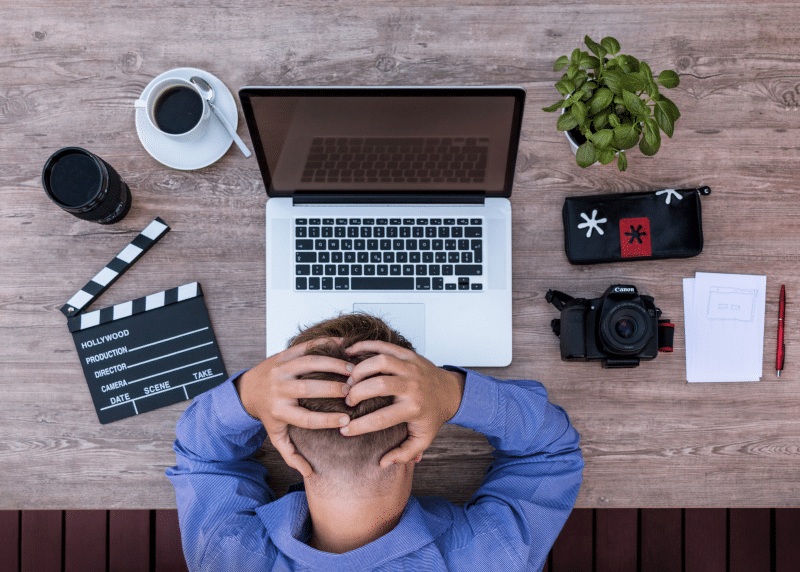Alopecia or simply hair loss is a relatively common complaint that affects members of both genders in masses. It is a cosmetically displeasing condition that can significantly impact someone’s confidence or perception of self. The psychosocial burden of hair loss, regardless of how severe or mild alopecia is, has been largely proven, although the anxiety and distress can be poorly understood or underestimated by those fortunate enough to be unaffected by this condition.
The psychosocial consequences of Alopecia
Even though Alopecia is one of the most prevalent dermatologic conditions around the globe, it is still vastly considered as being just a benign cosmetic issue, with little to no attention being paid to the psychological consequences it has on the patient’s state of mind.
 Although the role of psychosocial stress in the development and progression of alopecia has been widely studied over the years, there has been little emphasis on how individuals suffer and cope from the stress and anxiety put forward by the condition itself. Dermatological studies on the matter show that patients suffering with alopecia are more at risk of psychosocial and psychiatric illnesses due to their low self-esteem and perception of self. Avoidance of social interactions is also noticed in hair loss patients.
Although the role of psychosocial stress in the development and progression of alopecia has been widely studied over the years, there has been little emphasis on how individuals suffer and cope from the stress and anxiety put forward by the condition itself. Dermatological studies on the matter show that patients suffering with alopecia are more at risk of psychosocial and psychiatric illnesses due to their low self-esteem and perception of self. Avoidance of social interactions is also noticed in hair loss patients.
According to the studies available, those suffering the most psychosocial impact are patients diagnosed with alopecia areata and alopecia androgenetica.
Alopecia Areata
Alopecia areata, or the non-scarring type of hair loss, presents itself in the form of patchy hair loss, that can vary from unnoticeable slowly progressive type, to severe hair loss accompanied by itching and pain. Both variants, in the end, result in permanent baldness that can visibly change the appearance of an individual in an unwelcomed way. Being an autoimmune disease, Alopecia areata also shares a high association with other autoimmune diseases, thereby multiplying the psychosocial burden on the individual.
In a study where the psychological burden of hair loss and quality of life between the women with scarring and non-scarring alopecia was compared, the psychological impact was found to be heavier and poorer in the former category. This difference could be justified with the fact that women with scarring alopecia have a poorer prognosis in terms of hair regrowth and thus the cosmetic outcomes.
Androgenetic Alopecia
Androgenetic Alopecia or male/female pattern of baldness is also recognized as another culprit that is increasing psychosocial insecurity and low self-esteem among the population. It is estimated to be prevalent among at least 50% of white American males aged 50. Pharmaceutical drugs, cosmetic aids, and surgical hair transplants are the usual recommended treatment therapies offered to the suffering patient. However much less attention is put by many consulting physicians on the psychosocial burden of hair loss on the patient. Leaving patients usually unsatisfied with their treatment outcomes.
In another study patients suffering from alopecia areata (AA) and androgenetic alopecia (AGA), were compared with individuals having none of these mentioned conditions. The comparison was made based on life satisfaction, stress level, anxiety, and depression. It was found that anxiety and depression were significantly higher in patients suffering from these hair diseases than in the other individuals of the population.
According to this study, patients with hair disease were experiencing more anxiety and depression, had low satisfaction levels with life than their healthy counterparts, and these differences were most prominent among patients with alopecia areata.
Another research specifically targeting the body image satisfaction among patients with androgenetic alopecia found that female patients were more dissatisfied in comparison to males. And the treatment-seeking attitude was more prevalent among the female population as well.
Conclusion
All individuals suffering from hair loss, whether it be Alopecia Areata, Androgenetic Alopecia, or other forms of hair loss, should not only be evaluated and counseled for the visible symptoms and consequences of the illness, but also for the psychosocial burden of hair loss and the distress these conditions bring about. Stress and anxiety may be the reasons for certain types of hair loss, but they can also be a serious consequence of hair loss itself.
References
Cash TF. The psychosocial consequences of androgenetic alopecia: a review of the research literature. The British journal of dermatology. 1999 Sep;141(3):398-405.
Tucker P. Bald is beautiful? The psychosocial impact of alopecia areata. Journal of Health Psychology. 2009 Jan;14(1):142-51.
MATzER F, Egger JW, Kopera D. Psychosocial stress and coping in alopecia areata: a questionnaire survey and qualitative study among 45 patients. Acta dermato-venereologica. 2011 May 1;91(3):318-27.
Katoulis AC, Christodoulou C, Liakou AI, Kouris A, Korkoliakou P, Kaloudi E, Kanelleas A, Papageorgiou C, Rigopoulos D. Quality of life and psychosocial impact of scarring and non‐scarring alopecia in women. JDDG: Journal der Deutschen Dermatologischen Gesellschaft. 2015 Feb;13(2):137-41.
Van der Donk J, Passchier J, Knegt‐Junk C, VAN DER WEGEN‐KEIJSER MH, Nieboer C, Stolz E, Verhage F. Psychological characteristics of women with androgenetic alopecia: a controlled study. British Journal of Dermatology. 1991 Sep;125(3):248-52.
Hunt N, McHale S. The psychological impact of alopecia. Bmj. 2005 Oct 20;331(7522):951-3.
Solomon JA. The Psychosocial Burden of Alopecia Areata and Androgenetica.
Titeca G, Goudetsidis L, Francq B, Sampogna F, Gieler U, Tomas‐Aragones L, Lien L, Jemec GB, Misery L, Szabo C, Linder D. ‘The psychosocial burden of alopecia areata and androgenetica’: a cross‐sectional multicentre study among dermatological out‐patients in 13 European countries. Journal of the European Academy of Dermatology and Venereology. 2019 Aug 29.
